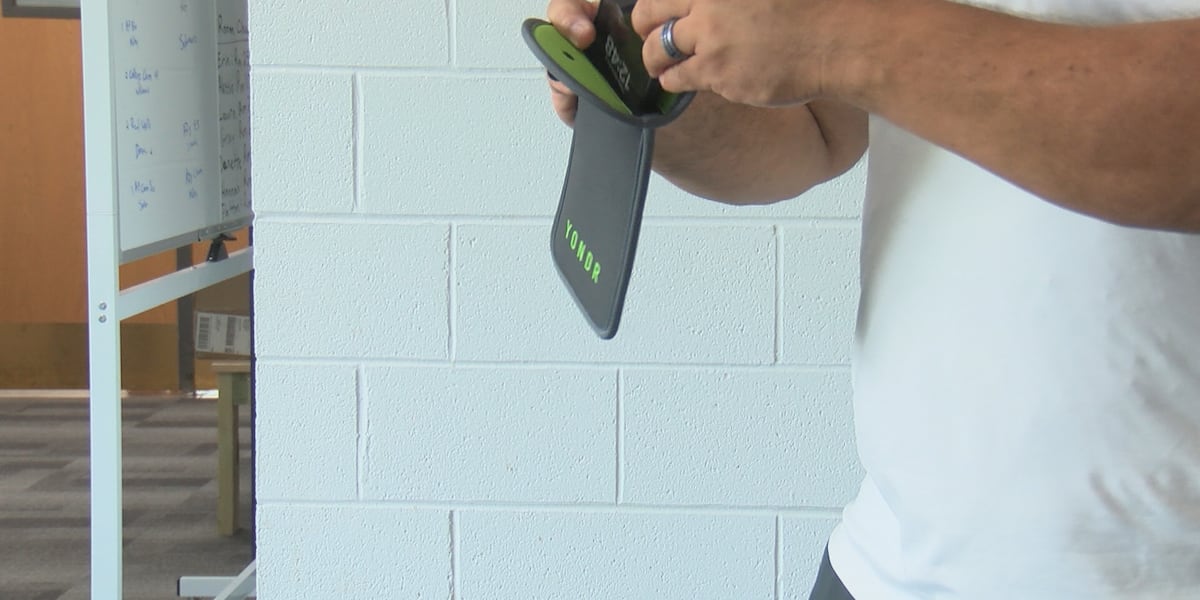HONOLULU (HawaiiNewsNow) – A recent state Department of Education survey shows adults and students are deeply divided on cell phone use during school.
In the spring, the DOE asked staff, students, and families about the impact of cell phones, their school policies and enforcement.
The report comes as more than 30 states now have laws restricting electronic devices in public schools and Hawaii considers a ban as well.
For now, each DOE school sets their own rules.
More than 85% of Hawaii public schools have a cell phone policy. The most common is requiring devices be turned off and stored out of sight.
The problem for teachers is that many students ignore the rules and enforcement is lacking.
“The kids would always kind of sneak it out, waistband, kids are very creative in how they do things,” said Aaron Kubo, a social studies teacher at Hilo Intermediate School. “They’d be texting or taking pictures and things like that and going on social media. … We did end up with a lot of different confrontations, a lot of ‘he said,’ ‘they said,’ and fights and things like that.”
“I would ask kids, hey, put your phone in a bag or a pocket, and get told F off,” said John Fitzpatrick, a science teacher at Kulanihakoi High School. “Just asking kids to put their phone away can be a like major combat.”
This year, Hilo Intermediate School implemented the mandatory use of Yondr pouches. Students cannot access their devices until the school day ends.
“Essentially the cell phone and any kind of other wireless device, simply goes right into the pouch and literally, little snippet here and it actually seals. So the pouch stays inside their bag, so it’s with them the whole time,” Kubo said, adding that he’s doing a lot less policing and confiscating devices and there’s much less fighting.
“Kids are now having to interact with each other more,” she said. “They’re having to talk to each other more.”
The DOE’s statewide survey shows teachers, staff and families believe cell phones are harmful to learning, student engagement and school safety.
Many teachers say cell phones contribute to bullying and create mental health issues in teens.
“I was at Waena before this school, and cell phones weren’t even allowed before school or at lunch and recess, and it cut down on the number of fights,” Fitzpatrick said.
“The difficulty of getting students to engage in class because they always want to be on their cell phone instead of doing their work, they should be banned.”
Not everyone supports a full-on ban, and instead advocate teaching responsible use and self-regulation.
“It’s hard for me to be like, we’re gonna build an app, but you can’t test it on your phone,” said Sarah Milianta-Laffin, a STEM teacher at Ilima Intermediate School who incorporates technology in her teaching.
“These devices are not going away. So how do we teach them to use them correctly? How do we teach them the executive management skills?”
Parents also worry a ban would mean not being able to contact their child in an emergency.
But those who support a ban say a cell phone’s benefits don’t outweigh the harms.
“I understand there’s like a huge range of teachers, some teachers like it, but I think for students’ mental health, they should be banned because they’re on Instagram and doing all these apps that just make them depressed,” Fitzpatrick said.
The state Board of Education will discuss the cell phone report at its meeting tomorrow.
Copyright 2025 Hawaii News Now. All rights reserved.

